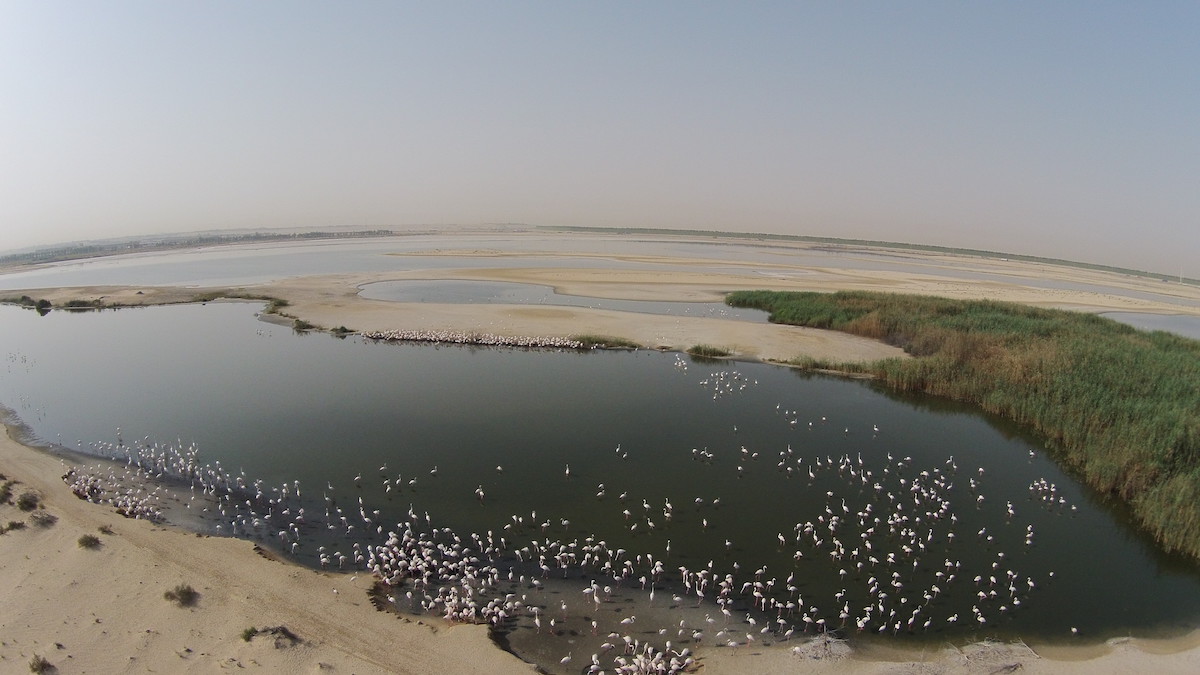The Environment Agency-Abu Dhabi (EAD) has announced a significant step forward in preserving the Al Wathba Wetland Reserve. The third phase of the reserve's habitat rehabilitation program is underway, aiming to enrich the biodiversity and establish a natural barrier around the wetland. This initiative comes after the successful completion of the program's first two phases, which focused on designing and installing an irrigation system across the vast 5-square-kilometer reserve.
The Al Wathba Wetland Reserve is a haven for a remarkable array of wildlife. Over 4, 000 greater flamingos find refuge within the reserve, along with 260 bird species and a thriving population of reptiles, small mammals, and insects. The importance of the reserve extends far beyond its borders. It serves as a crucial breeding ground for the greater flamingo, the only site in the UAE to see regular flamingo breeding.
The new phase of the program will see the planting of 2, 500 native trees. These trees, specifically chosen for their resilience to the UAE's arid climate, will create a natural barrier. The Tarfa tree, also known as Ethel (Tamarix aphylla), will be the primary species planted. This fast-growing tree is perfectly suited to the environment, tolerating extreme heat, drought, and salinity. Other native trees like Ghada (Haloxylon persicum), Arak (Salvadora persica), and Ghaf (Prosopis cineraria) will also be included in the planting project. These trees all share the valuable trait of requiring minimal water and care, making them ideal for the long-term sustainability of the reserve.
The kick-off event for the third phase was marked by the planting of seedlings by Razan Khalifa Al Mubarak, Secretary-General of the EAD, and Adel Ahmed Albuainain, Chief Executive Officer of Dolphin Energy Limited. This partnership between the EAD and Dolphin Energy highlights the collaborative effort to preserve Abu Dhabi's natural heritage.
The Al Wathba Wetland Reserve rehabilitation program aligns with the UAE's commitment to environmental stewardship. The initiative not only bolsters the reserve's ecosystem but also strengthens its role as a center for scientific research, particularly in the field of migratory bird conservation. By creating a flourishing habitat, the program ensures the continued success of the reserve as a popular destination for sustainable ecotourism. The future phases of the program are expected to build on this progress, solidifying the Al Wathba Wetland Reserve as a cornerstone of Abu Dhabi's environmental preservation efforts.

